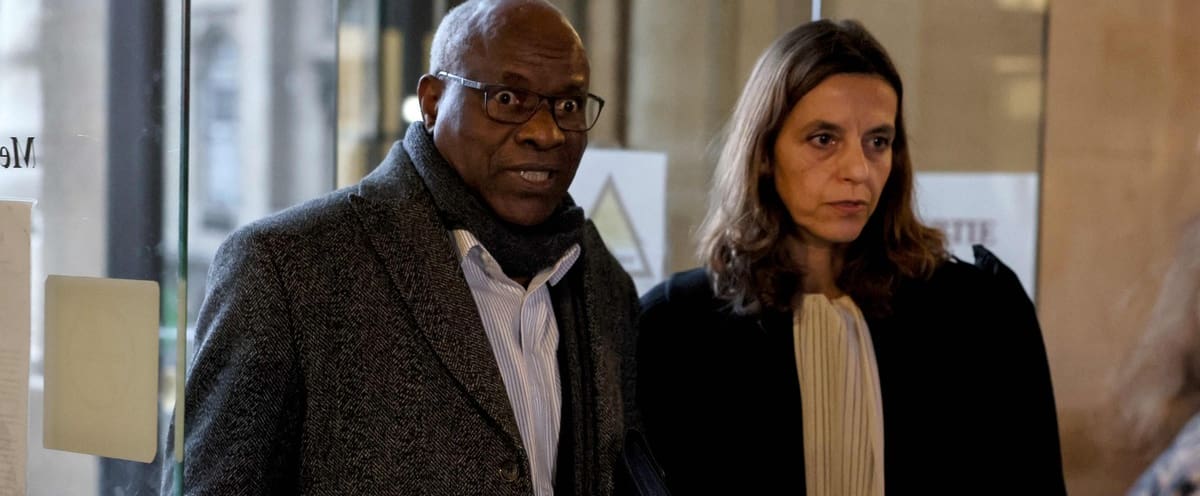It is a trial based solely on witness statements, i.e. on facts that go back 28 years. In the trial of a former doctor accused of his role in the 1994 genocide against the Tutsi, the Paris jury on Tuesday debated the credibility of the testimony.
• Also read: Genocide in Rwanda: The trial of a former doctor opened in Paris
Survivors and relatives of the victims of these massacres, in which more than 800,000 people died between April and June 1994, did not comment. But the question of the credibility of her statements has been raised again and again since the trial against Sosthène Munyemana opened a week ago.
“It has been 28 years and five days since this affair began,” said one of his two lawyers, Me Jean-Yves Dupeux, on the first day of filing a lawsuit against the former doctor. This actually makes it the oldest file on facts relating to the genocide examined in France.
And in this process there is “no material element, everything is based on human testimony,” he noted. However, “we know how fragile human testimonies are.”
Sosthène Munyemana, who has lived in France since September 1994 and is now retired, is on trial for genocide and crimes against humanity.
He is suspected of having taken part in the massacres by supporting the interim government set up after the attack on Hutu President Juvénal Habyarimana’s plane on April 6, 1994, the starting point of the killings.
He is also accused of setting up cordons and patrols in the Butare region of southern Rwanda, during which people were arrested and then killed, and of holding the key to an office where Tutsi were locked up before their execution.
The former gynecologist denies the allegations and argues that the current Rwandan government is planning revenge. “The government wants to silence all the people who criticize it,” he said on Friday.
“Trial against Paul Kagame”
On Tuesday, his lawyers released a video summarizing a recent report by the NGO Human Rights Watch that blamed Rwandan authorities for killings, beatings and kidnappings of dissidents abroad.
It is a “regime that prevents the freedom of expression of people who are exposed to physical risks but also the threat of legal proceedings in their own country,” summarized Me Florence Bourg, another lawyer for Mr. Munyemana.
One of the witnesses called by the defense, who was supposed to be heard on Wednesday, also refrained from doing so: In an email to the president of the jury that was read out in court, he claims to have learned that “agents from Kigali” are people who are trying to Support for the accused came, made “life impossible” and called into question the Collective of Civil Parties for Rwanda (CPCR).
“Grotesque” claims for the collective’s lawyer, Me Simon Foreman. According to him, the defense strategy aims to “transform the trial of Sosthène Munyemana into the trial of Paul Kagame,” who has ruled Rwanda with an iron fist since the end of the genocide.
A French investigator, who has traveled to Rwanda twice as part of this process and is called to the witness stand to explain the nature of the investigation, recognizes this: “From the beginning we were aware that we were dealing with a file which consisted 100% of witness statements.
On the ground, “our job will be to collect and evaluate these testimonies” and “try to hold as many hearings as possible to establish guidelines,” he explains, admitting that certain statements were made “out of a wish.” out of “personal revenge” or even the desire to “make money from a social position.”
However, they were “few in number and clearly identified,” he adds, also explaining that the witness interviews were carried out “without the presence of Rwandan investigators” in order to “reassure the witnesses.”
“The legal truth, the psychologists’ truth and the victims’ truth are not necessarily the same truth,” explains psychoanalyst Diana Kolnikoff. “In this type of trial, it’s word against word. What comes out is a word that is convincing or not.”

